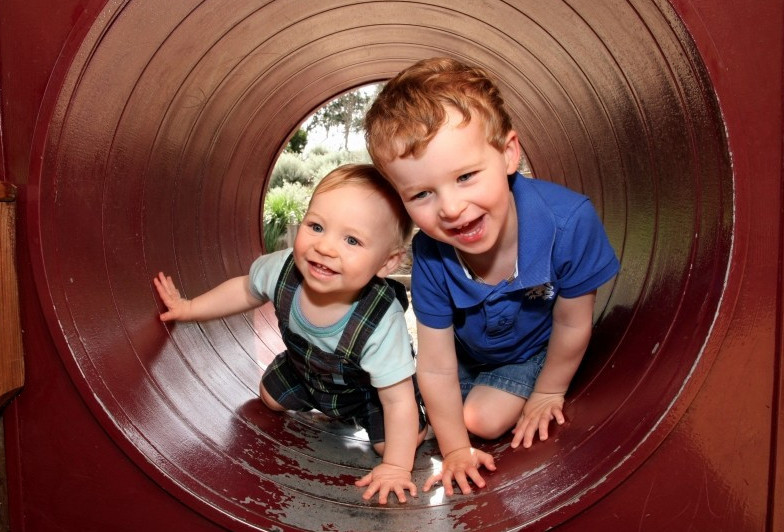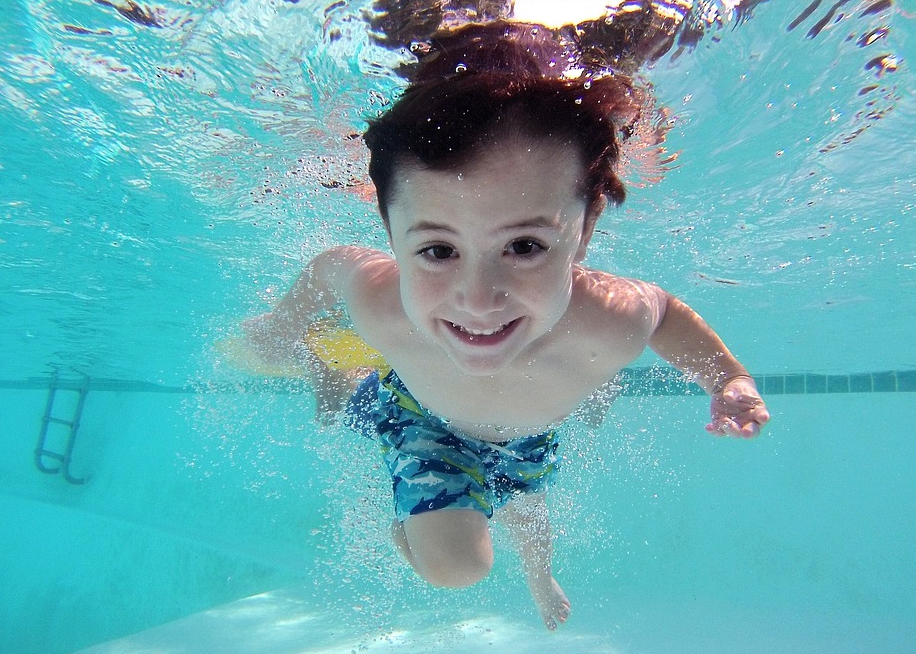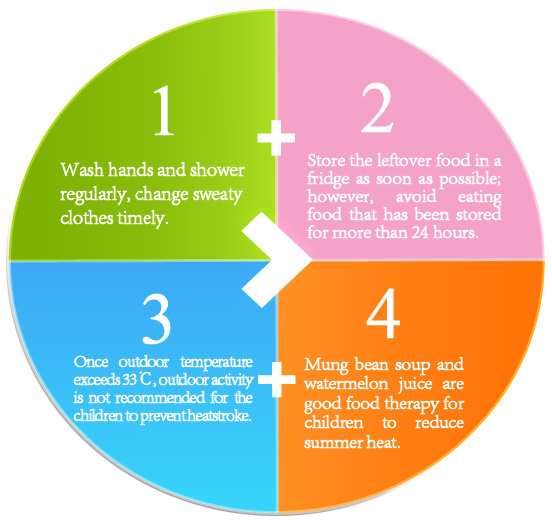
Children love summer and enjoy summer sunshine in the parks, playgrounds, beaches and swimming pools. At the same time, the hot weather reduces appetite and sleep but increase metabolism. Meanwhile, bacteria multiply faster in summer, making children more prone to sickness, which often worries the parents.
What can be done to protect them from diseases and spent a healthy happy summer time with the family? Continue reading this article on summer health tips for children.
No.1: Tips for outdoor activity 
Although UV light in the sunshine strengthens immunity and improves skeletal development of children by increasing calcium absorption, long time outdoor activities might cause damages to the skin and eyes, and even lead to heatstroke or dehydration in severe cases. Therefore, we suggest that parents should monitor the time their children spent playing outside and limit it to 2 hours at one time. It’s better to rest properly and drink enough fluids before continue playing. A wide-brimmed hat is recommended to shield the sunlight. The younger the children are, the easier they would suffer from dehydration. Therefore, remind your children to drink water every 1 to 2 hours and it is advisable to have frequent, small amounts of fluids.
For long time outdoor activities, wear sunblock 30 minutes before heading out and replenish every 2 hours.
No.2: Tips for water activity 
Water sports and activity is a popular entertainment in summer, however, it can be dangerous for children if parents were not being careful, thus, parents should pay close attention when taking them to the waterside to avoid incidents like drowning.
Preventive measures: choose a fitting life jacket for your child. Don't forget to wear waterproof sunscreen before getting in the pool. Meanwhile, you can also choose to wear UV-proof sunglasses, hats, and swimming suits for further protection.
Human body sweats easily when swimming in the sun, which leads to dehydration, thus, don’t forget to drink enough fluids. Parents must watch carefully for symptoms like dizziness and nausea, the most typical symptoms of dehydration and heatstroke.
No.3: Tips for disease prevention 
1, Hand-foot-and-mouth disease (HFMD)
This disease is common in children under 6 during its epidemic seasons from May to July. Symptoms include fever, rashes on hand and feet as well as oral herpes. In acute cases, patient may even develop complications like encephalitis or other life-threatening situations. Since HFMD is highly contagious and infect mainly through respiratory droplets, the most effective prevention is to improve self-protection and avoid physical contacts with other sick children. Make them wash hands regularly and kindergarten should disinfect the toys frequently. Do not share a towel or tableware. In case of prolonged high fever or withered spirits, go to see a doctor as soon as possible.
2, Summer diarrhea
Bacteria multiply faster in summer and gastrointestinal diseases, especially bacterial enteritis, are common if personal hygiene is compromised. On the other hand, mosquitoes and flies become a major pathogenic source in summer, contaminating food or tableware. As the Chinese saying goes, “sickness enters the body from the mouth”, it’s better to stop children from eating street snacks and drinking un-boiled water.
Due to high temperature, Children crave for cold drinks and AC, which is likely to cause gastrointestinal dysfunctions and develop symptoms like stomachache or diarrhea. Parents need to be careful with their children to control the intake of cold or frozen food, avoiding damages to the digestive system by inappropriate diet.
Notes from the doctor: it is important to find out the cause for summer diarrhea and treat accordingly. Do not use antibiotics for all diarrheas regardless of the cause, which might induce severe side effects.
3, Summer cold
Most children getting cold in summer is due to the lower temperature by powerful AC indoors. For example, public areas tend to set a very low temperature and creates a significant temperature difference from the outside, therefore, staying in a cool place for long time decrease the body’s natural defense and make it easier to be affected by virus. Typical symptoms include blocked and running nose, fever and so on. It is suggested to bring a light jacket and keep warm all the time. It takes about one week to recover by resting well and drinking enough fluids.
4, Bug bite
Children get bug bites easily in summer and although there are many repellent products available like spray, sticker, bracelet, electronic devices, and the safest choice for your baby is a mosquito net. For other repellents, always check the instruction to make sure it’s suitable to be used on children.
In case the child has been bitten, external application of soothing lotions, calamine lotions or cooling ointments are recommended to relieve itching so that the child will not scratch the skin or cause secondary infection.
Mosquito is the major carrier of Japanese encephalitis and several other tropical diseases; therefore, children over 1 year should receive encephalitis vaccine accordingly.
Summer health tips for children 




 京公网安备11010102007413号
京公网安备11010102007413号